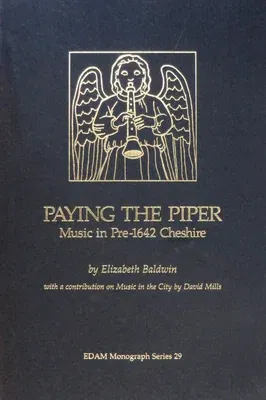Elizabeth Baldwin
(Author)Paying the Piper: Music in Pre-1642 CheshireHardcover, 1 July 2002

Qty
1
Turbo
Ships in 2 - 3 days
In Stock
Free Delivery
Cash on Delivery
15 Days
Free Returns
Secure Checkout

Part of Series
Early Drama, Art, and Music Monograph Series
Print Length
299 pages
Language
English
Publisher
Medieval Institute Publications
Date Published
1 Jul 2002
ISBN-10
1580440401
ISBN-13
9781580440400
Description
Product Details
Author:
Book Format:
Hardcover
Country of Origin:
GB
Date Published:
1 July 2002
Genre:
Medieval (500-1453) Studies
ISBN-10:
1580440401
ISBN-13:
9781580440400
Language:
English
Location:
Kalamazoo
Pages:
299
Publisher:
Weight:
1460.57 gm